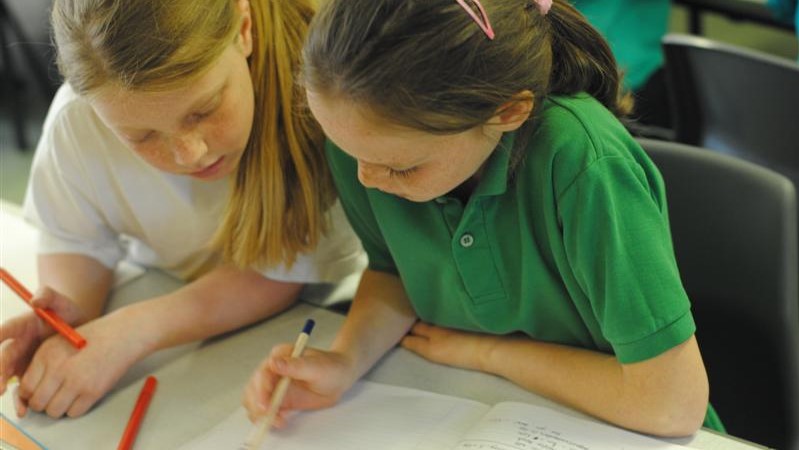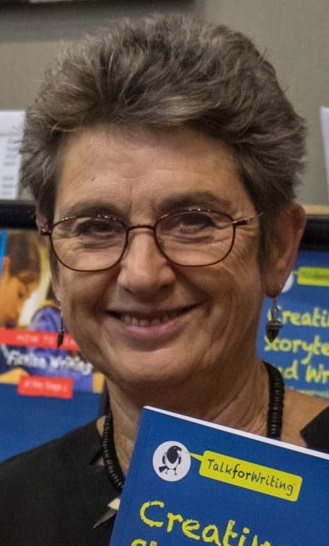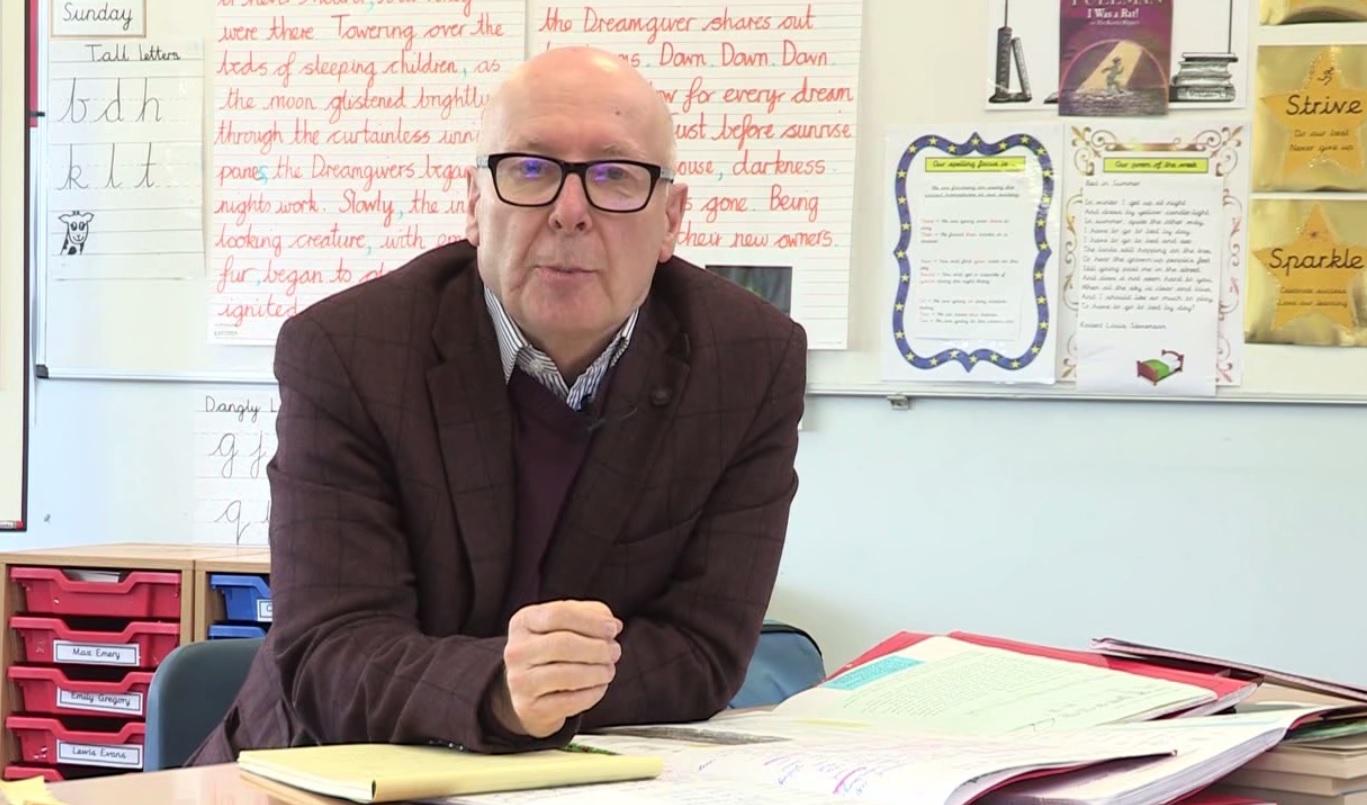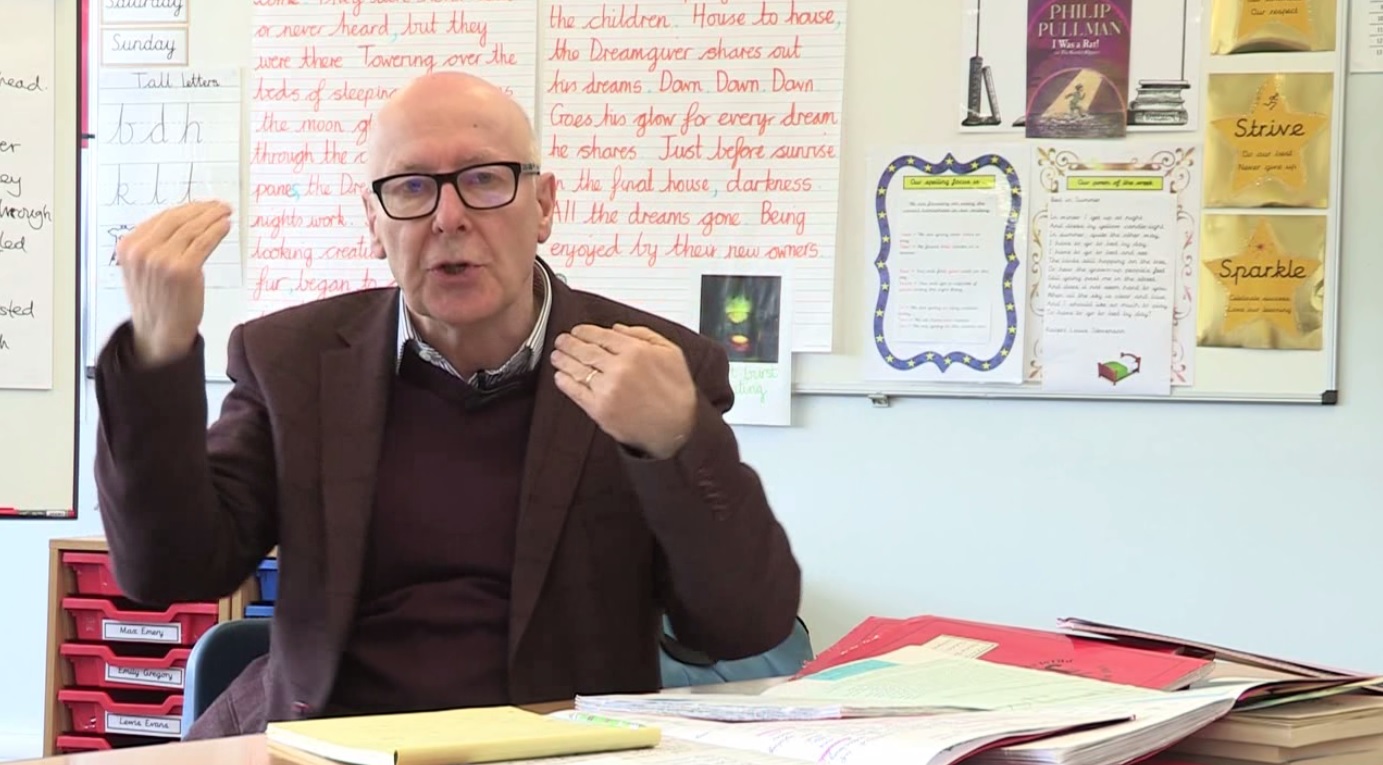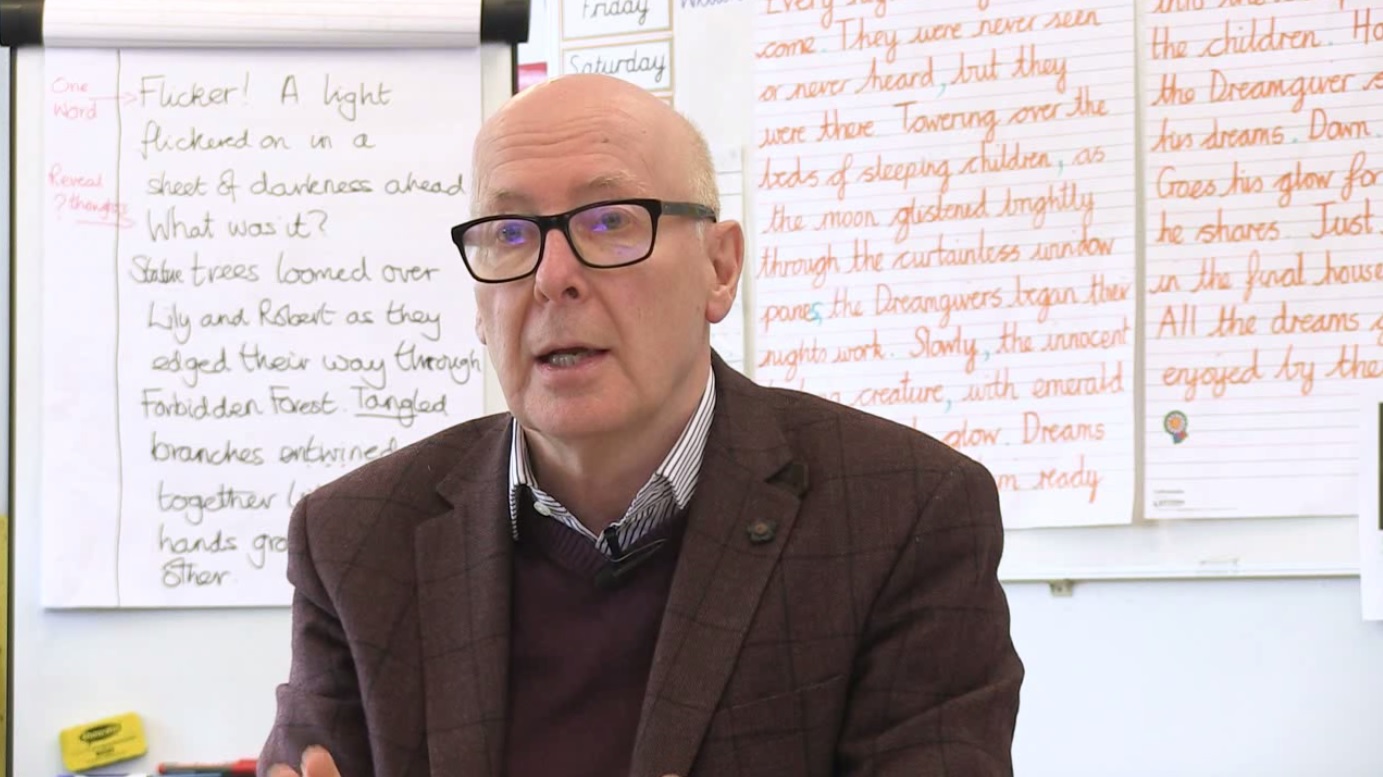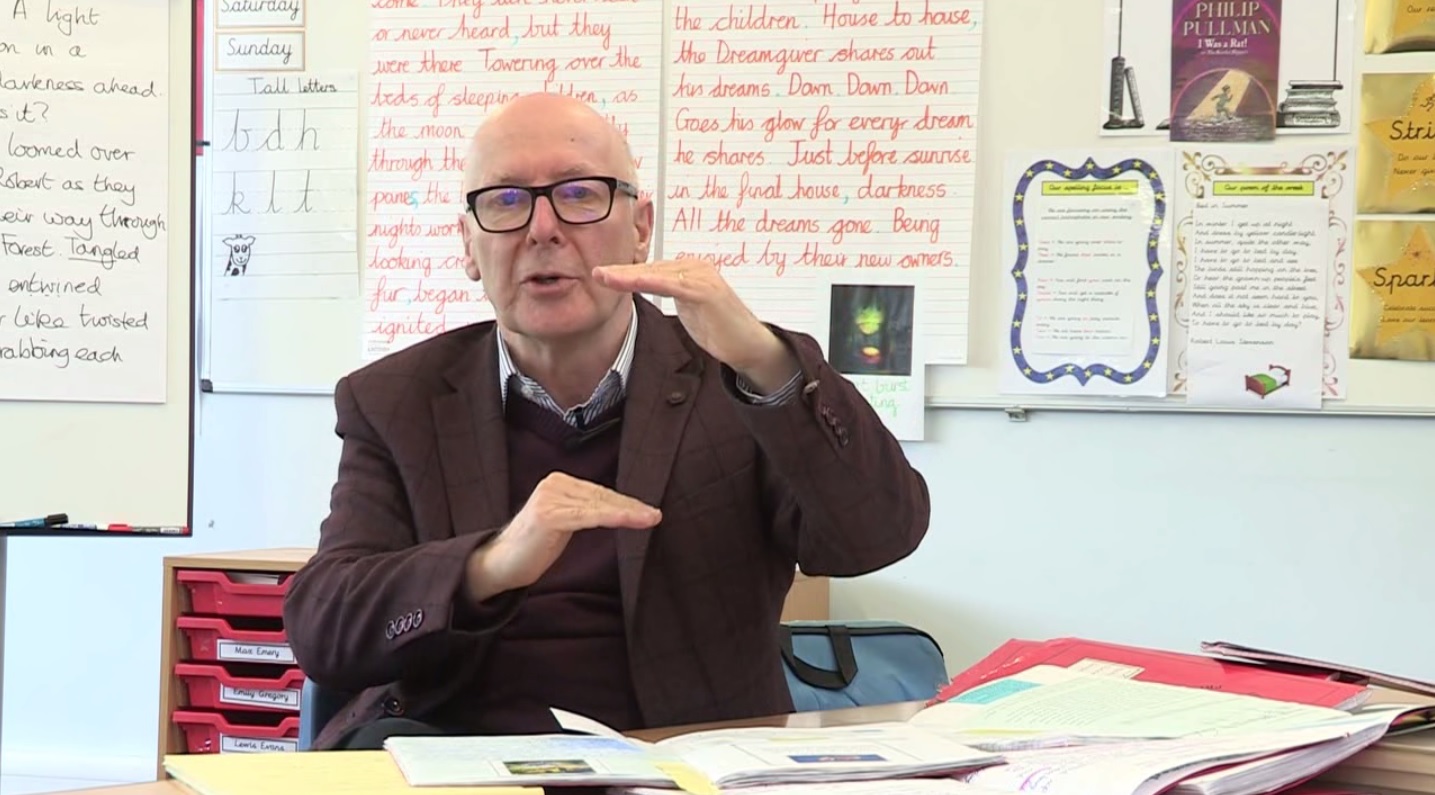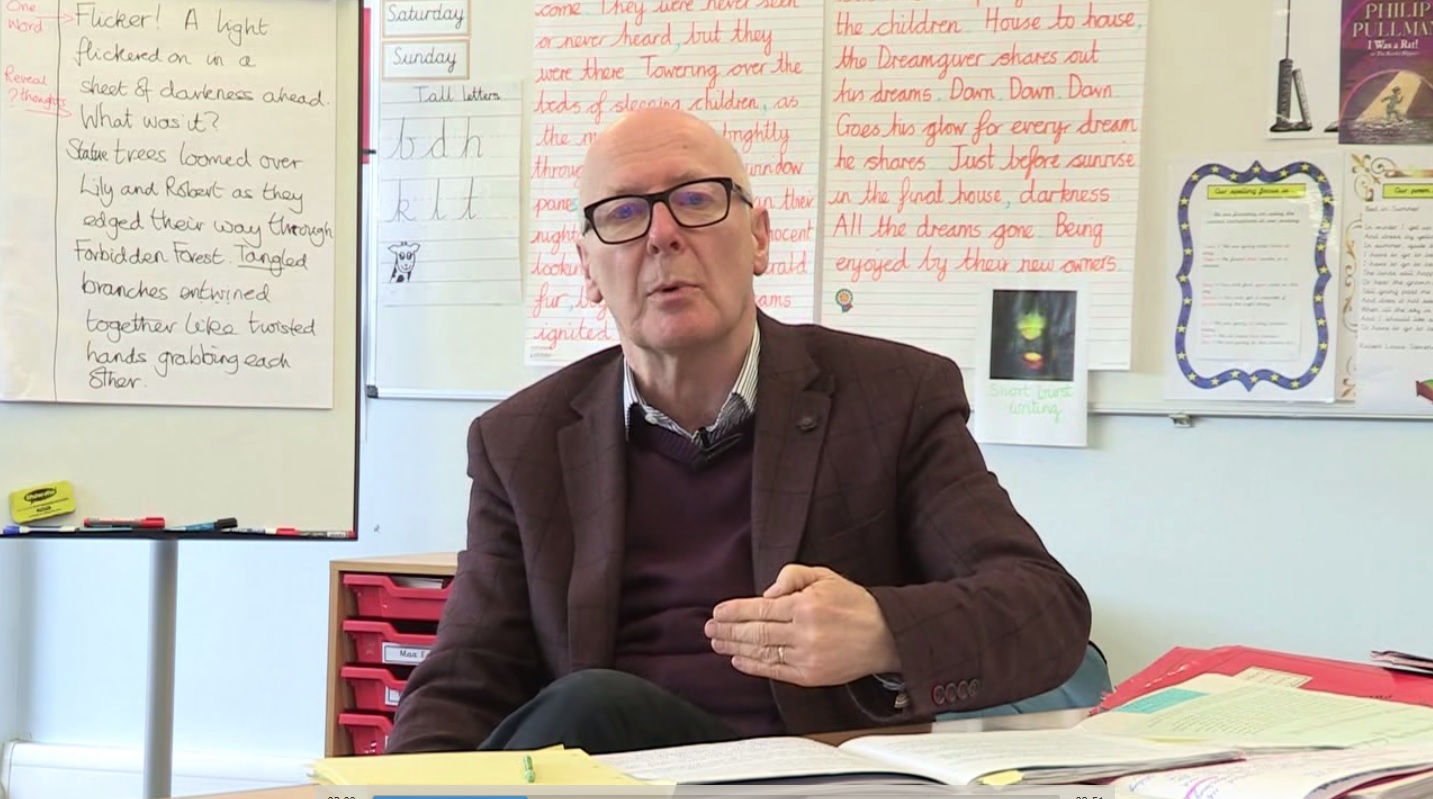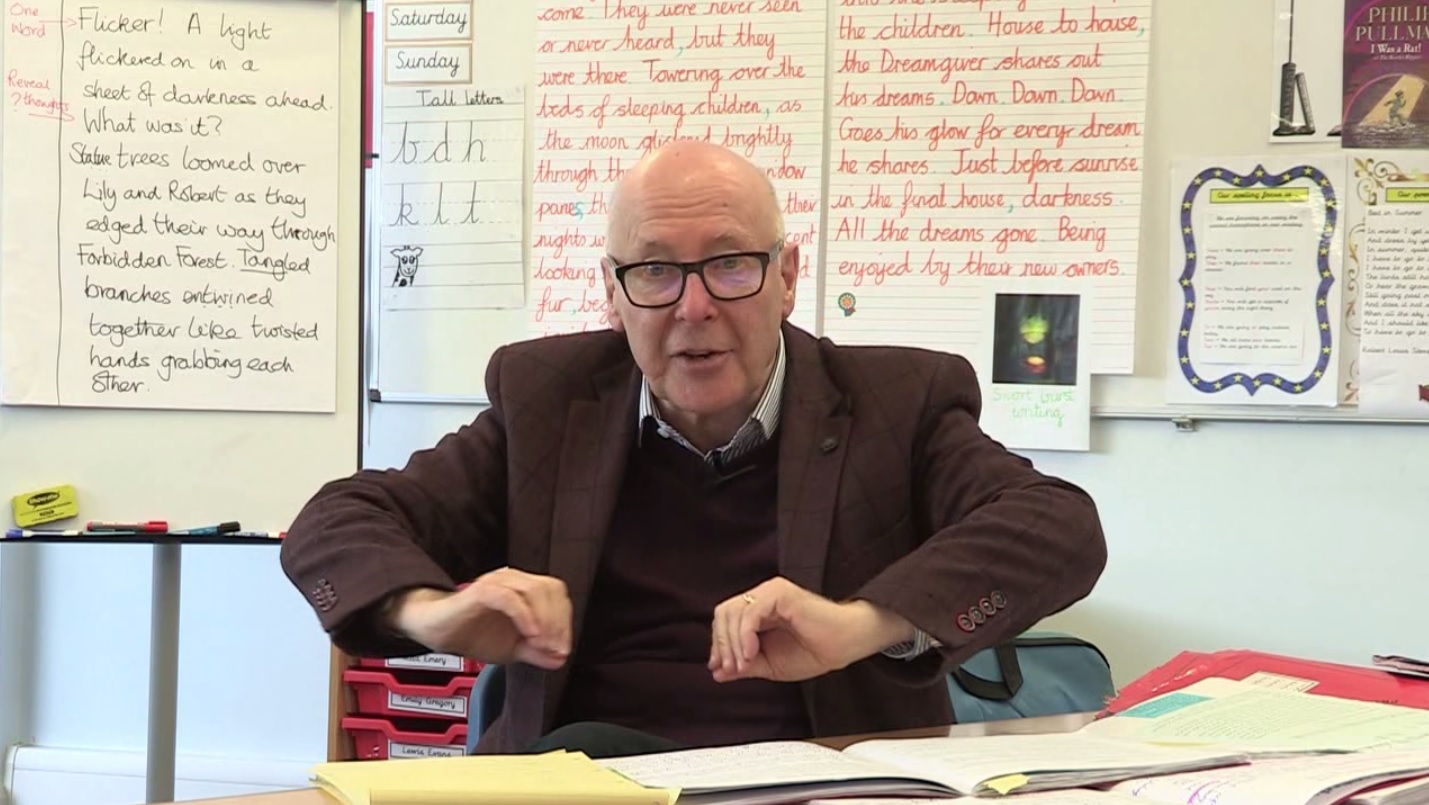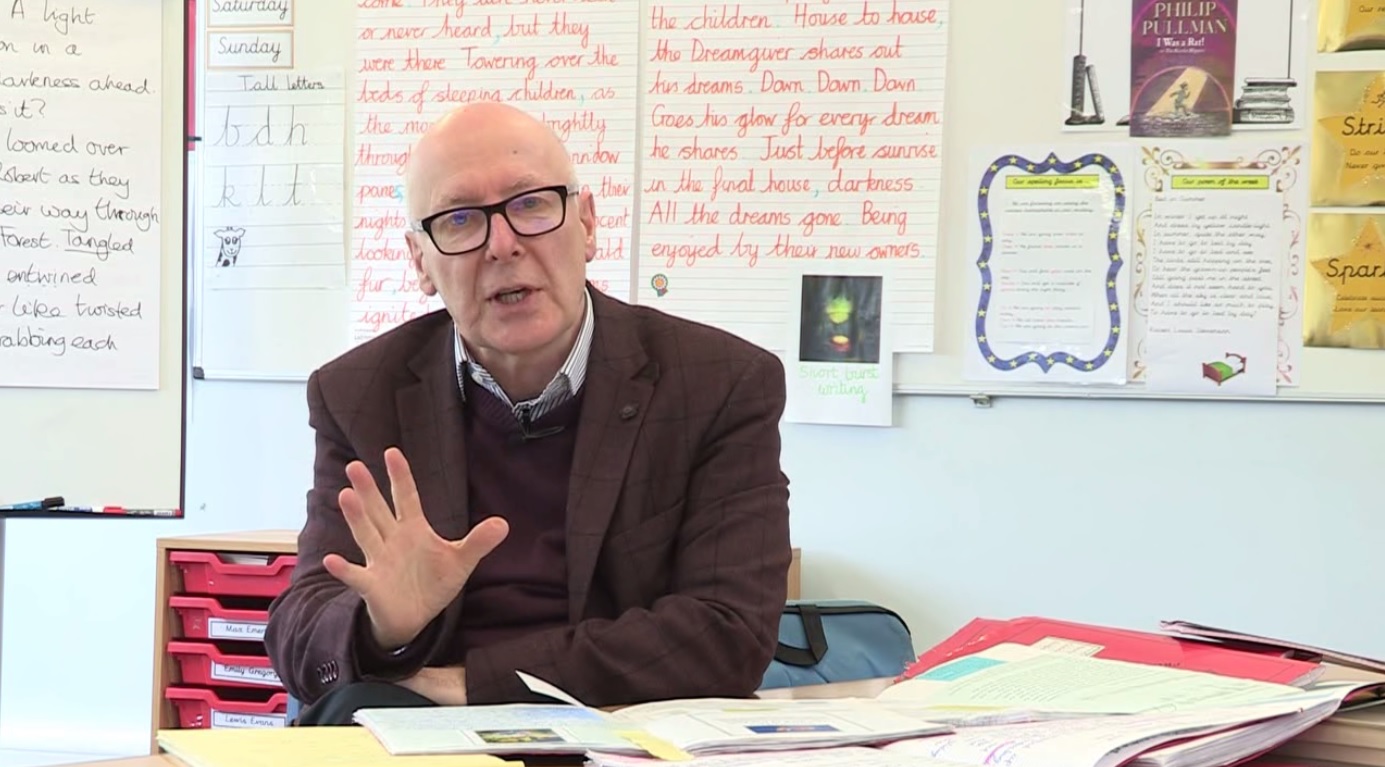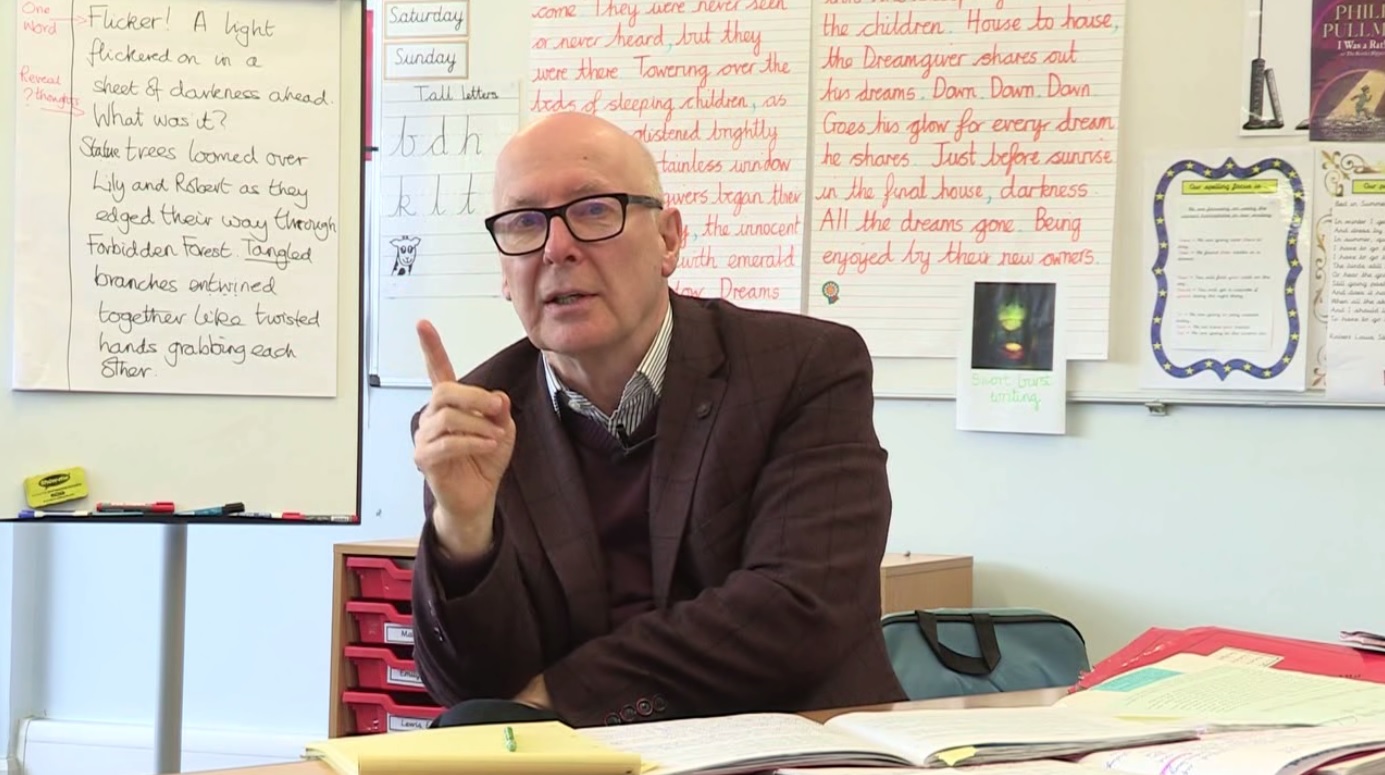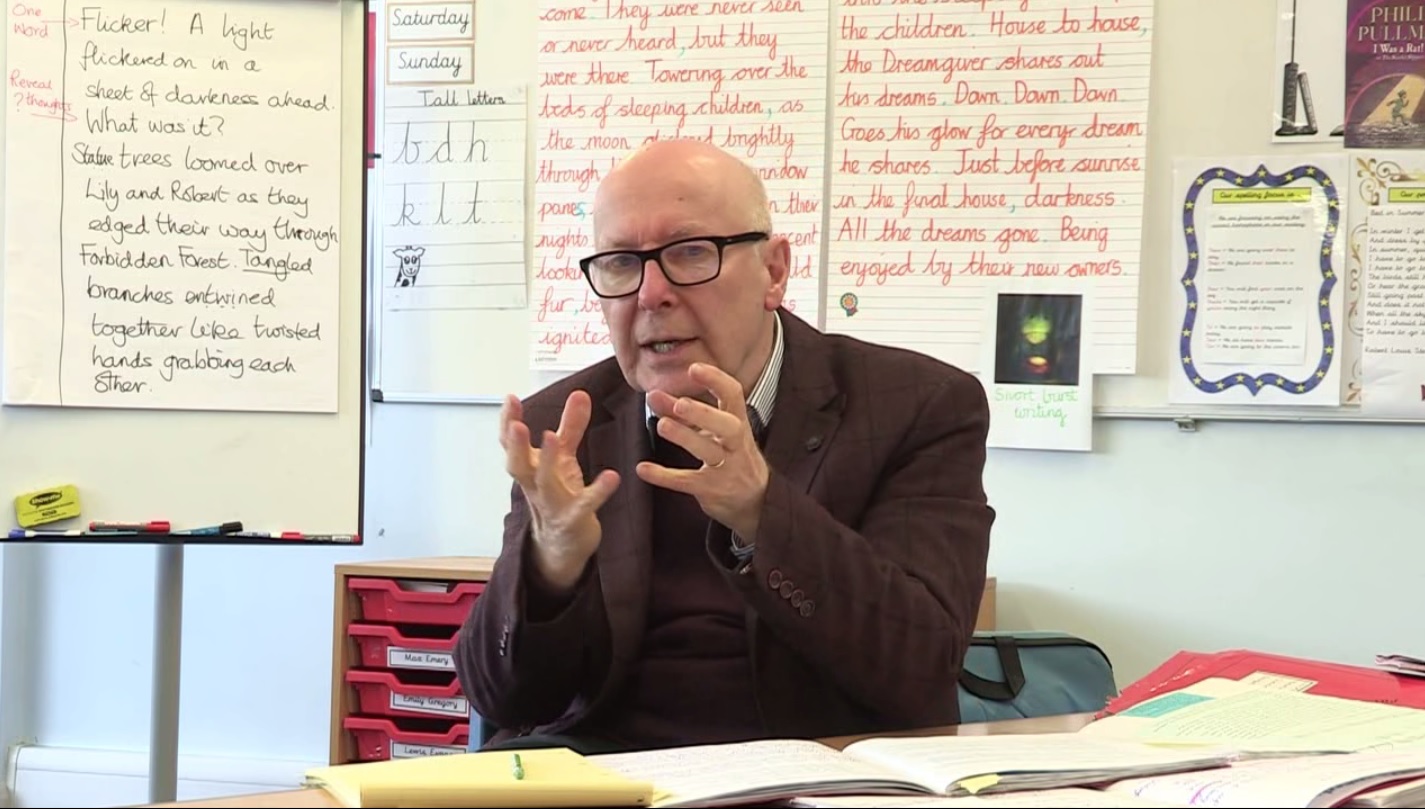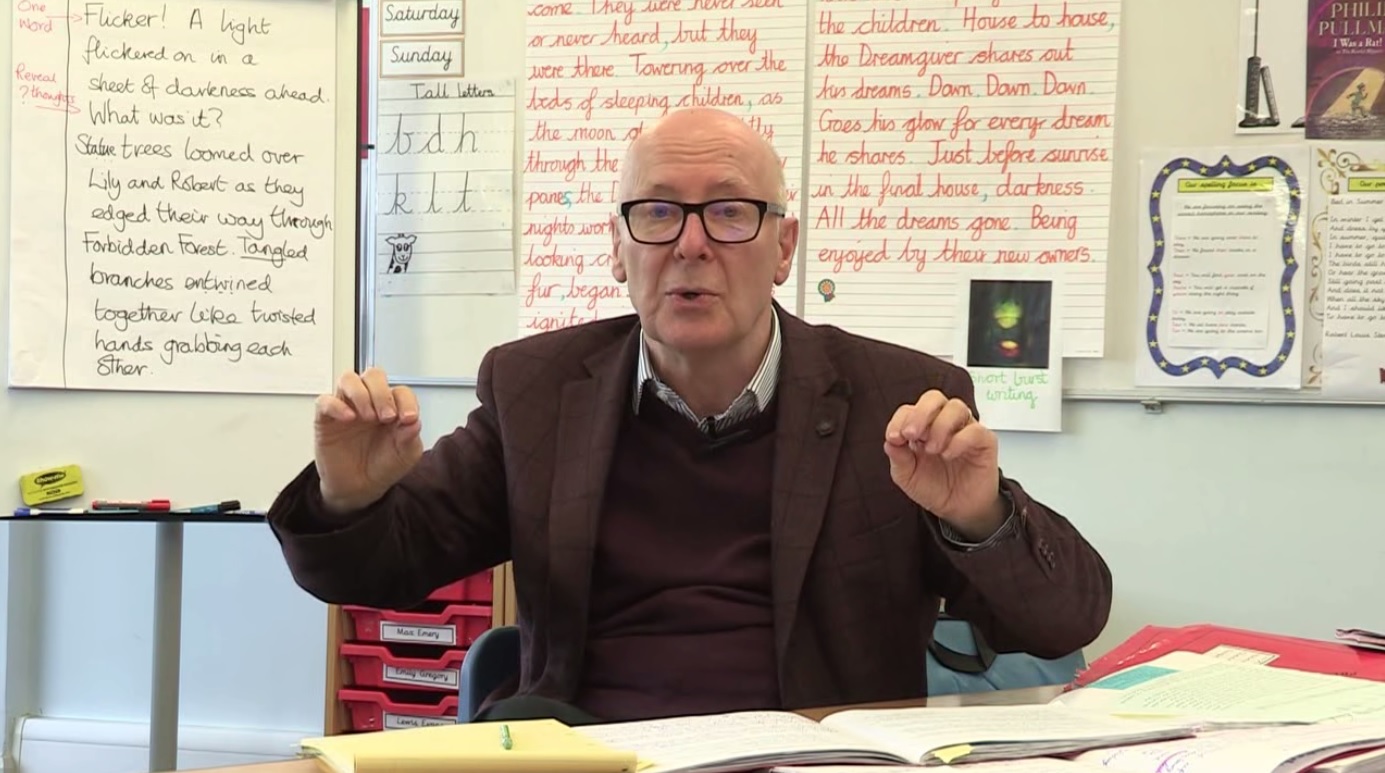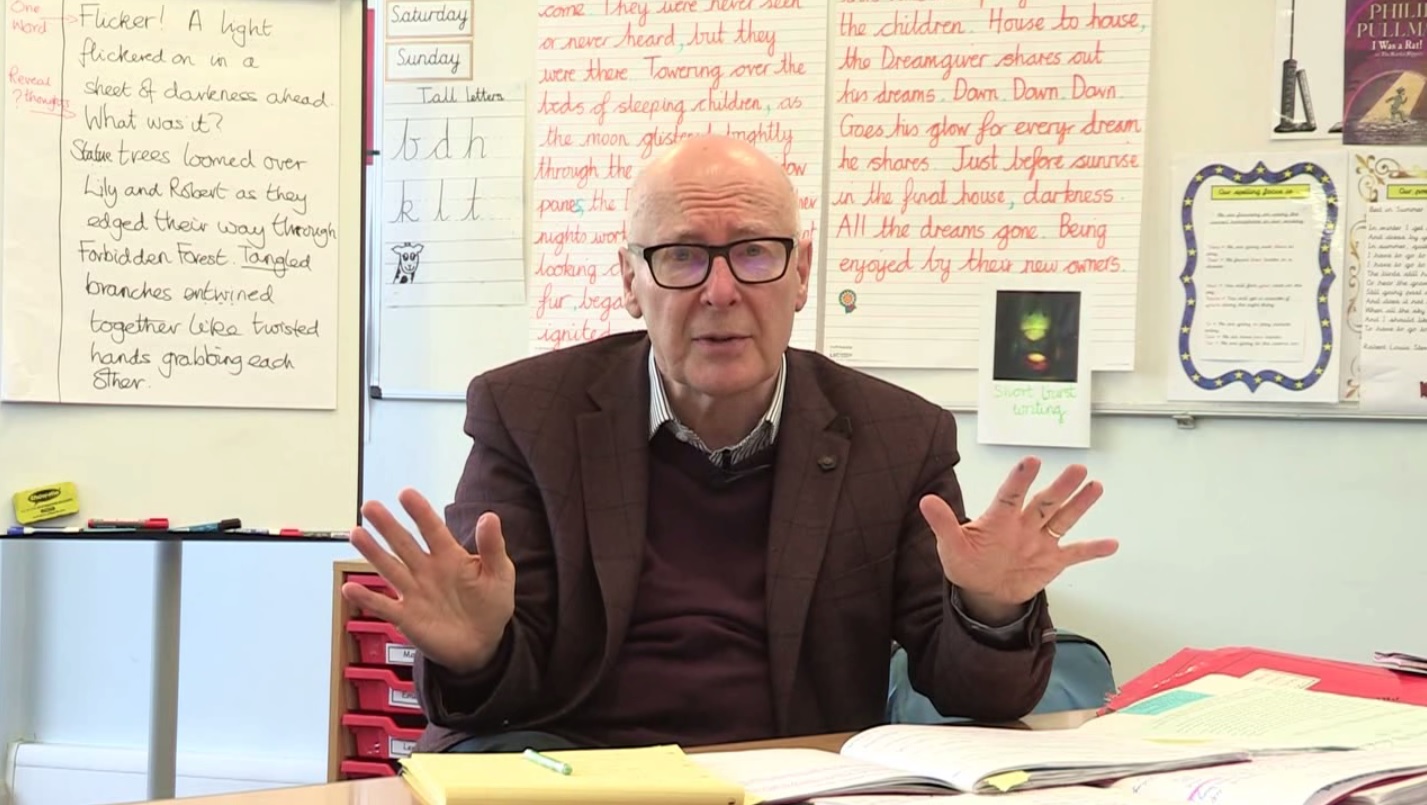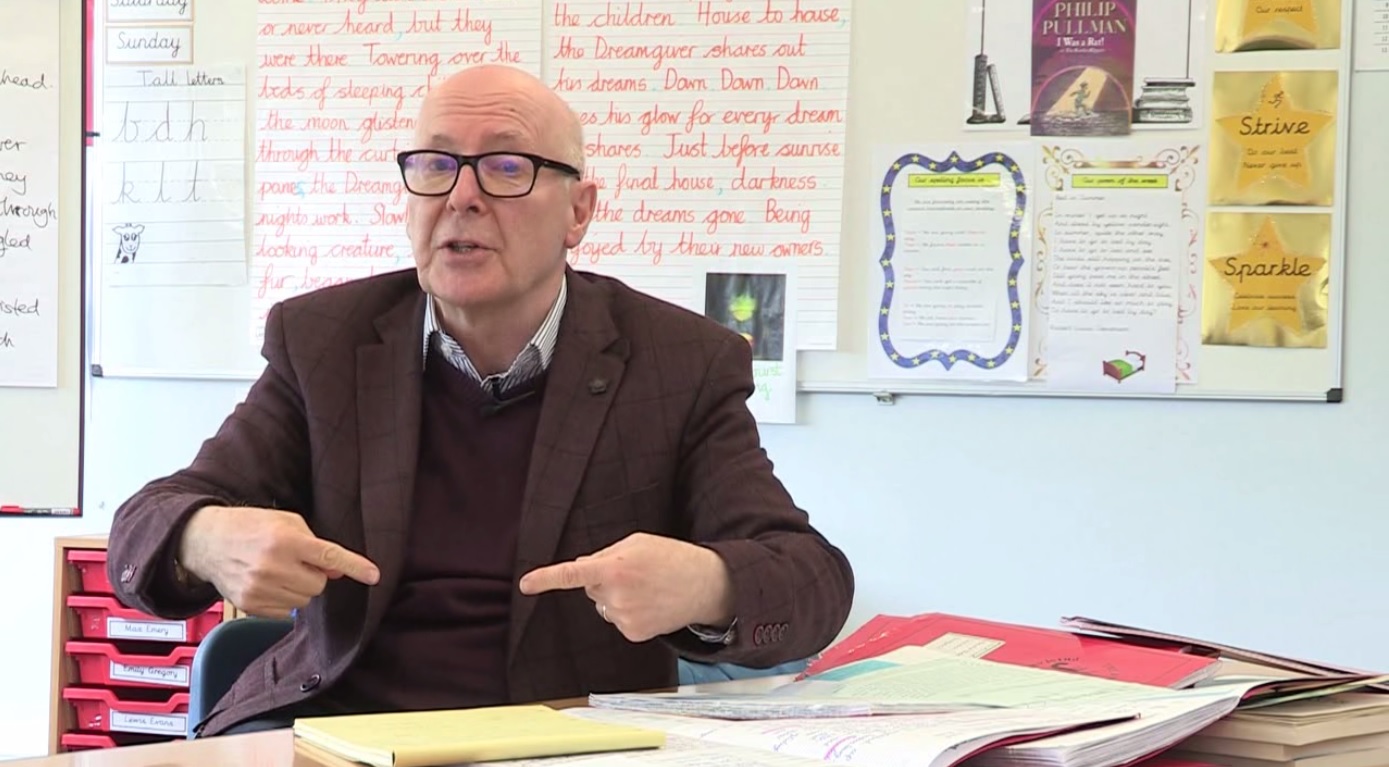Talk for Writing, developed by Pie Corbett, supported by Julia Strong and the Talk for Writing team, is powerful because it is based on the principles of how people learn. The movement from imitation to innovation to independent application can be adapted to suit the needs of learners of any stage.
Talk for Writing has had an outstanding impact on schools. Typically, schools have found that children initially double their rate of progress and, where the approach has been applied systematically across a setting, many schools have moved from dire results to outstanding success. Schools already performing well have not only increased attainment, but also enjoyment and engagement.
The Talk for Writing approach enables children to read and write independently for a variety of audiences and purposes within different subjects. A key feature is that children internalise the language structures needed to write through ‘talking the text’, as well as close reading. The approach moves from dependence towards independence, with the teacher using shared and guided teaching to develop the ability in children to write creatively and powerfully.
Schools underpin their English work by establishing a core reading spine of quality fiction, poetry and non-fiction that all children experience and draw upon. Imaginative units of work are developed to create a whole-school plan that is refined over the years, is well-resourced and documented to release teachers from planning and preparation so that they can focus on adapting their teaching for children’s learning.
The key phases of the Talk for Writing process, as outlined below, enable children to imitate orally the language they need for a particular topic, before reading and analysing it, and then writing their own version.
1. Baseline assessment and planning – the ‘cold’ task
Teaching is focused by initial assessment. Generally, teachers use what is known as a ‘cold’ task or a ‘have a go’ task. An interesting and rich starting point provides the stimulus and content but there is no initial teaching. The aim of this is to see what the children can do independently at the start of a unit, drawing on their prior learning. Assessment of their writing helps the teacher work out what to teach the whole class, different groups and adapt the model text and plan. Targets can then be set for individuals. By the end of the unit, pupils complete a ‘hot’ task or a ‘show us what you know’ task which is an independent task on a similar type of writing with an interesting stimulus. Progress should be evident which encourages pupils and helps schools track the impact of teaching.
2. The imitation stage
The teaching begins with some sort of creative ‘hook’ which engages the pupils, often with a sense of enjoyment, audience and purpose. Writing challenges, such as informing Dr Who about how the Tardis works or producing leaflets for younger children about healthy eating, provide a sense of purpose. The model text is pitched well above the pupils’ level and has built into it the underlying, transferable structures and language patterns that students will need when they are writing. This is learned using a ‘text map’ and actions to strengthen memory and help students internalise the text. Activities such as drama are used to deepen understanding of the text.
Once students can ‘talk like the text’, the model, and other examples, are then read for vocabulary and comprehension, before being analysed for the basic text (boxing up) and language patterns, as well as writing techniques or toolkits. All of this first phase is underpinned by rehearsing key spellings and grammatical patterns. Short-burst writing is used to practise key focuses such as description, persuasion or scientific explanation.
3. The innovation stage
Once students are familiar with the model text, then the teacher leads them into creating their own versions. A new subject is presented and the teacher leads students through planning. With younger pupils, this is based on changing the basic map and retelling new versions. Older students use boxed-up planners and the teacher demonstrates how to create simple plans and orally develop ideas prior to writing. Ideas may need to be generated and organised or information researched and added to a planner. Shared and guided writing is then used to stage writing over a number of days so that students are writing texts bit by bit, concentrating on bringing all the elements together, writing effectively and accurately. Feedback is given during the lessons, as well as using some form of visualiser on a daily basis, so that students can be taught how to improve their writing, make it more accurate, until they can increasingly edit in pairs or on their own.
4. Independent application and invention – the ‘hot’ task
Eventually, students move on to the third phase, which is when they apply independently what has been taught and practised. Before this happens, the teacher may decide to give further input and rehearsal. Students are guided through planning, drafting and revising their work independently. It is essential to provide a rich starting point that taps into what students know and what matters so that their writing is purposeful. Writing may be staged over a number of days and there may be time for several independent pieces to be written. With non-fiction, students should apply what they have been taught across the curriculum. The final piece is used as the ‘hot’ task, which clearly shows progress across the unit.
It is important that at the innovation and independent application stages, the writing becomes increasingly independent of the original model rather than a pale copy. Whilst four-year-olds may only make a few simple changes, older students should be adding, embellishing, altering and manipulating the original structure. From Key Stage 2 onwards, almost all children will be using the text structure and writing tools to write, drawing on the model, their wider reading and experience so that they are writing independently at a high level. This has to be modelled in shared writing.
The aim of Talk for Writing is to develop imaginative, creative and effective writers. In the same way, the aim of Talk for Reading is to grow confident, critical and appreciative readers. No student can be said to really be a reader until they make their own choices about what to read and begin to develop a taste. In the same vein, children are not really writers until they decide what they want to write and have opportunities to create their own writing tasks and write about their interests and lives creating stories, poems and informative writing for themselves.
For this reason, schools plan ‘invention’ units which often sit between taught units. These ‘invention’ units are when students have time for their own writing. Teachers may provide a stimulus such as a film clip, interesting object, drama, wordless picture book, work of art, music, visitor or visit as a starting point but the students decide what and how to write. This is truly independent writing. In the early years, children should be playing at making up stories daily, acting stories out and at least once a week be led by the teacher through making up class stories for future sharing.
5. Final assessment – building on progression
The quality of the model texts is crucial to progress. The models should be short and provide excellent examples of the key linguistic features being focused on, and they should increase in difficulty. With younger children, the imitation stage will take longer, as the children need to establish the language patterns that will underpin their learning; this is so that they can see how to innovate on a text and write their own version independently. As they get older, more sophisticated ways of imitating text and a greater range of models can be used, and there will be a greater emphasis on ensuring that the innovation stage helps the pupils to move away from the initial model, so that they become increasingly skilled as independent writers.
When the children are first taught a text type, they will co-construct the toolkit to help them understand the ingredients to consider. As they progress up the school, these toolkits should travel with them so that, year-on-year, they are refined as the pupils develop their skills. Over time, they should internalise these toolkits so they select appropriate features automatically and no longer need a visual support to scaffold their writing.
Transferable core principles
The core teaching practices and principles that are transferable across subjects are:
Keep it simple and clear
Use a strong, core model:
Read and explore models, attentively
Teacher as model reader, writer, mathematician, etc
Demonstrate how to do things – ‘I do, we do, you do’
Teach language needed orally as well as through reading
Think aloud to explain
Use shared and guided work
Provide other models
Show examples and talk it through
Use effective examples of children’s work and they talk it through
Small steps, bit by bit, for new and hard material:
The daily drip, drip rather than once a week
Don’t swamp children with too much
Pitch it high and expect everyone to succeed:
Differentiate through scaffolding
Lots of scaffolded practice where needed
Guide less confident children
Gradual release of responsibility
Aim for high rate of success
Provide feedback in lessons, after lessons:
Feedback leads to action by children
Feedback leads to re-teaching in a new way
Capture learning points with examples on learning walls/ in journals:
Use quizzes and reviews to embed learning
Our aims
- Raise standards in English across the UK for all children
- Establish a rich, engaging English curriculum
- Develop schools and early-years settings that can independently sustain improvement
- Ensure top quality consultancy so teachers are inspired, know what to do and how to do it
- Promote a culture of learning from each other and sharing best practice
Our key values
Passion for purpose
Integrity
Openness, kindness and consideration
Learning from each other and sharing good practice
Providing real value for money
Respecting teachers’ professionalism
Accrediting other people

